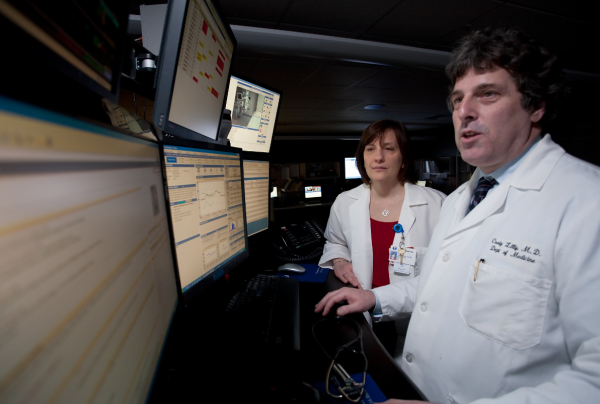
UMass Memorial Medical Center, Rob Carlin photography
eICU Director Cheryl Dunnington and Professor of Medicine Craig M. Lilly, MD, electronically monitor patients in the ICU at the UMass Memorial Medical Center University Campus from a remote location three miles away.
A study by Craig M. Lilly, MD, professor of medicine, anesthesiology and surgery, examining outcomes of intensive care patients in a facility with a telemedicine intervention program was featured on Tuesday, May 17, in the Boston Globe. The findings by Dr. Lilly, director of the eICU Program at UMass Memorial Medical Center, and colleagues showed patients monitored electronically by health care professionals located remotely had lower hospital and intensive care unit (ICU) mortality, lower rates of preventable complications and shorter stays in the hospital and ICU.
“A tele-intensive care unit is a promising technological approach designed to systematically alter processes of care that effect outcomes,” wrote Lilly. “Tele-ICU programs have the potential to target processes that are associated with better outcomes, including shorter response time to alarms and abnormal laboratory values, more rapid initiation of life-saving therapies and higher rates of adherence to critical care best practices.”
Tele-ICU clinicians located remotely use audio, video and electronic links to assist bedside caregivers in monitoring patients, to oversee best practice adherence, and to help create and execute care plans..